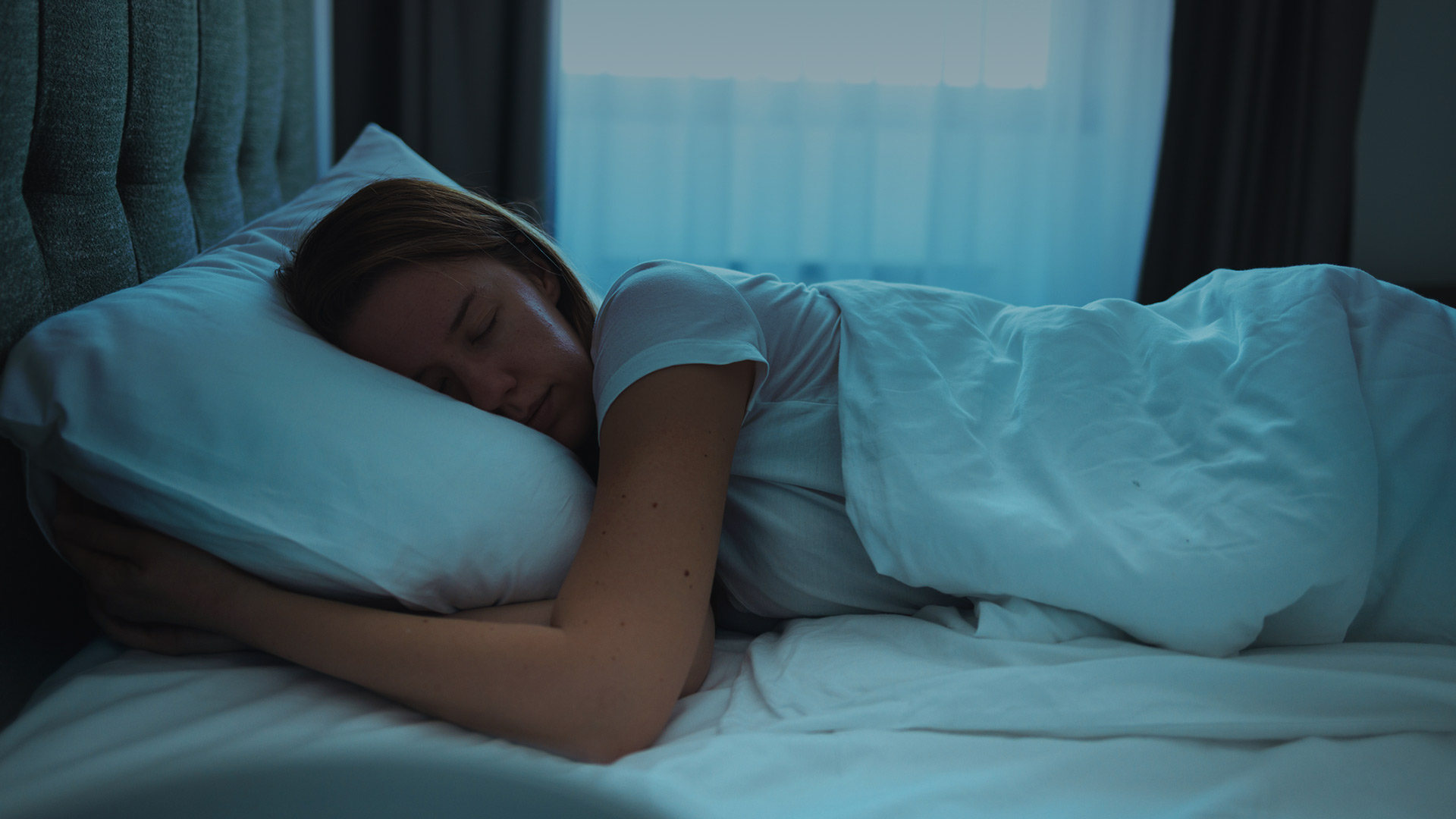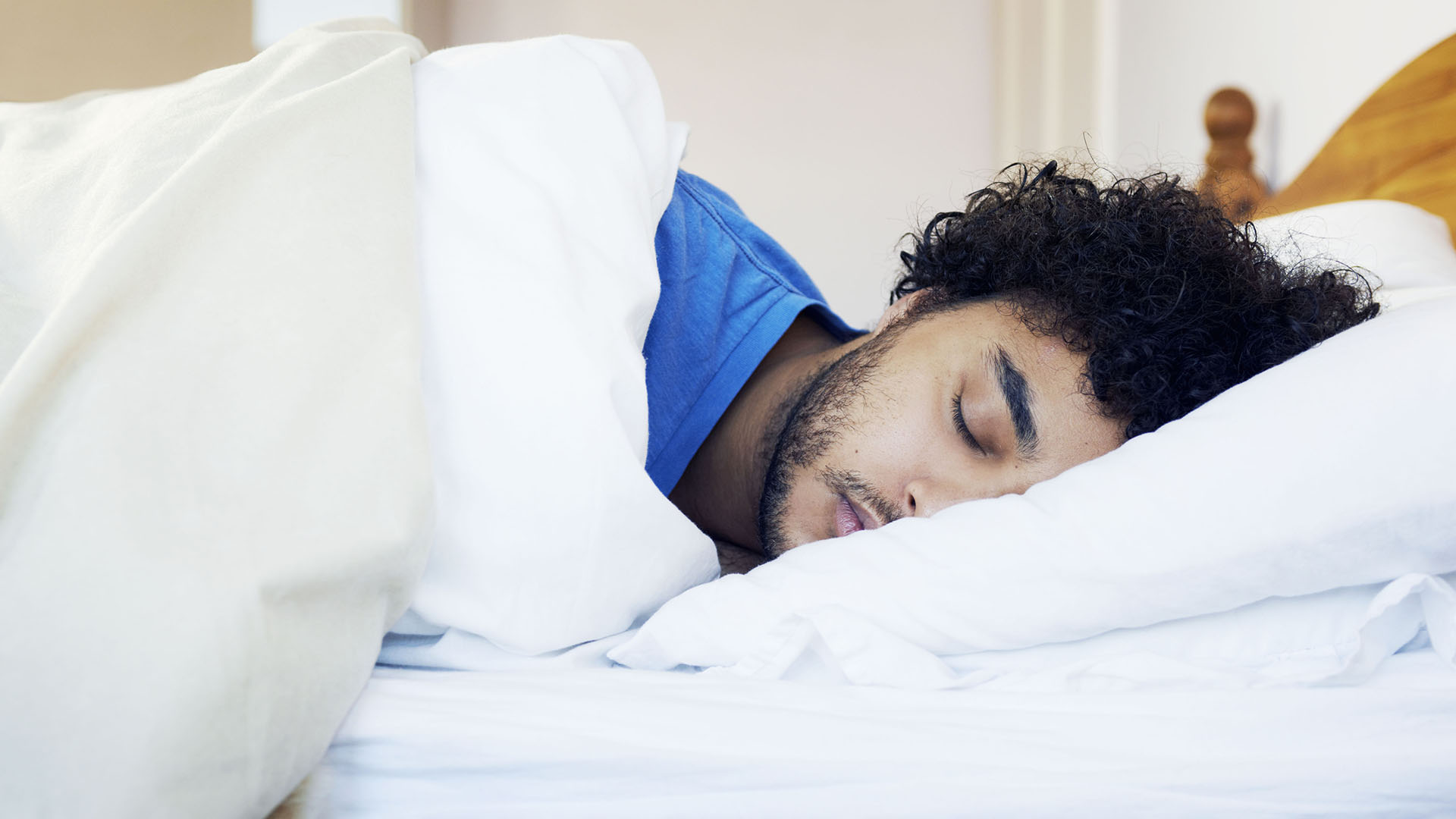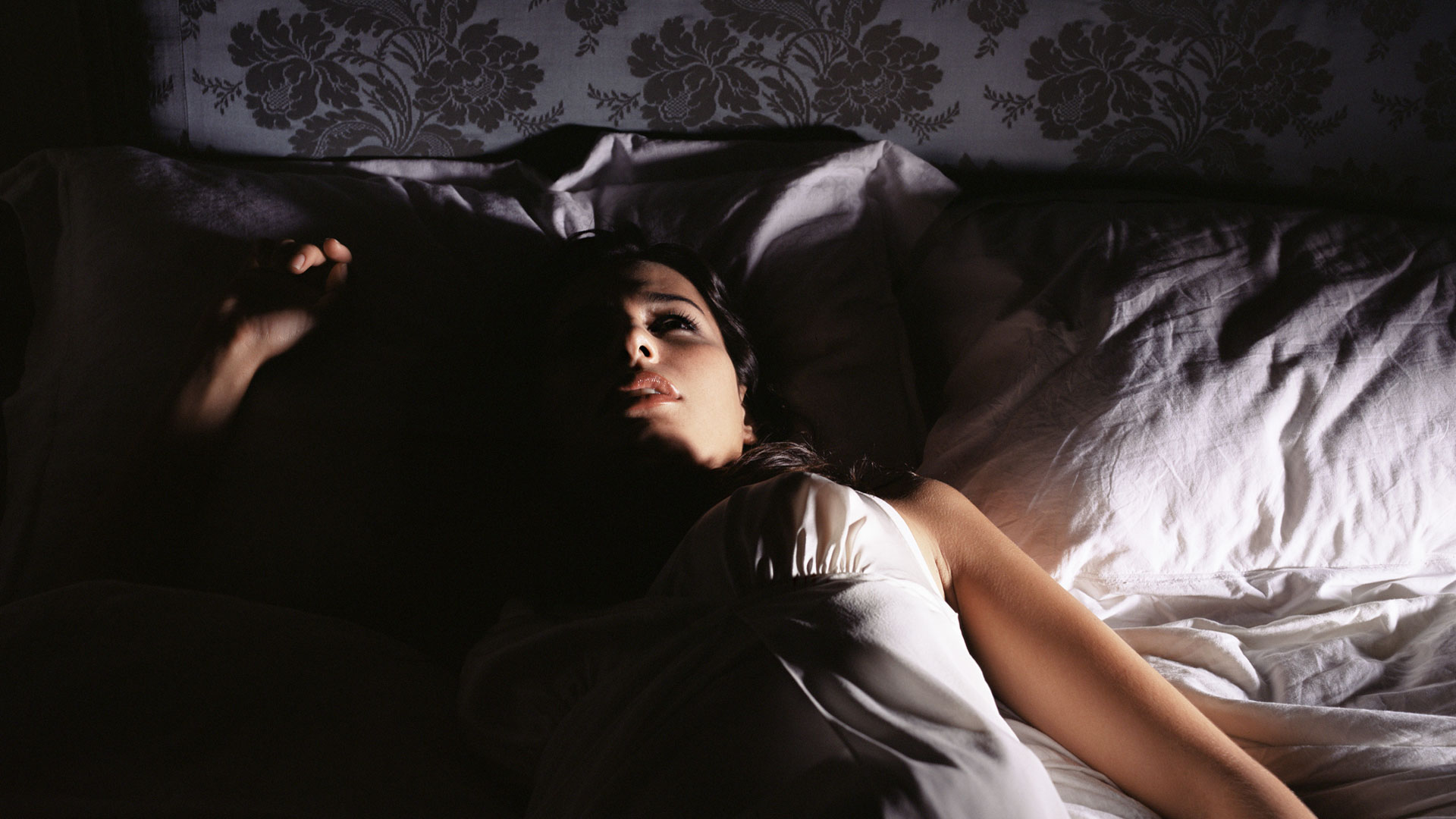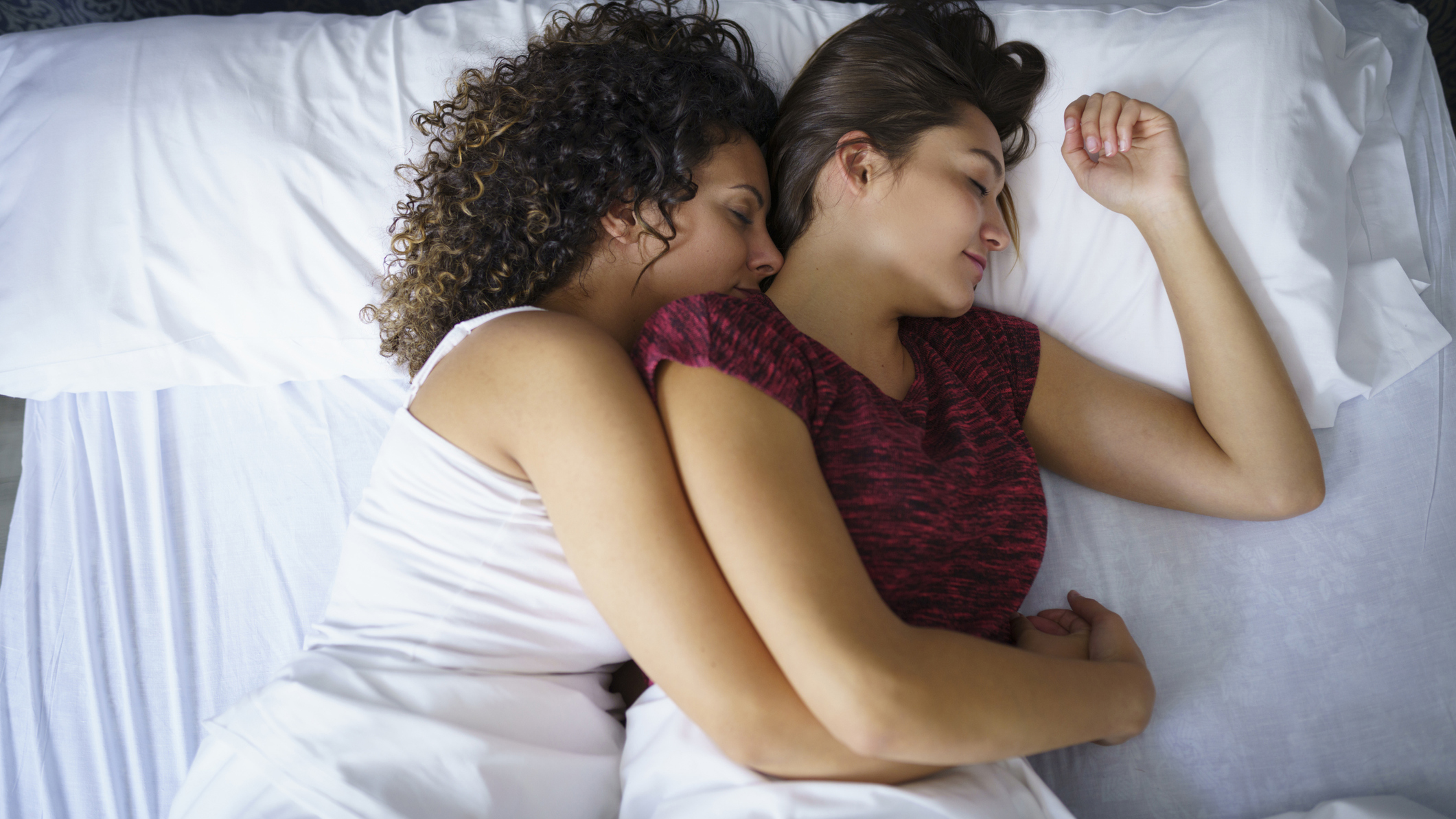
Deep sleep, or slow-wave sleep, has a restorative effect on our bodies - helping us to fight viruses and feel refreshed the next day.
But what is deep sleep? As we sleep our body cycles through four different stages of sleep, and after two stages of light sleep our bodies finally fall into a deep sleep. We need up to 2 hours a night of deep sleep to feel ourselves the next day, but some factors can stop us from reaching that state.
Tracy Hannigan, a qualified sleep coach, explains what deep sleep is, and why it's so important for our bodies, plus we also look at the latest research on why not getting enough deep sleep can harm your short term and long term health.
What is deep sleep?
To understand deep sleep it's first important to know about sleep cycles and how they can affect our health. As we fall asleep we cycle through four different stages of sleep - light, medium, deep, and then REM sleep. Each stage prepares our bodies for the next stage of sleep, and the more sleep we get the longer we stay in each stage during the sleep cycle.
So, what effect does deep sleep have on our bodies? "Stage 3, or deep sleep is our most restorative sleep, and is when our bodies do a tremendous amount of healing and rejuvenation through the activity of our immune system," explains Hannigan.
What happens during deep sleep?

By this point, our bodies have already relaxed - meaning our heart rate and breathing has slowed down to the lowest possible rate in the sleep cycle. This happens as your brain switches from a waking state to a sleep state.
Our muscles also start to relax, meaning we are exerting less energy - therefore fewer calories are being burned. It's not until we reach REM sleep that we start to burn more calories.
But, what are the other benefits of deep sleep? This study, from the University of Chicago, shows that during this stage of sleep, a growth hormone is also produced - allowing the body to grow and develop. Our immune system is also strengthened, while our energy levels are also restored.
How much deep sleep do you need?
We tend to get more light sleep as we cycle through the stages of sleep, but deep and REM sleep is important, as they allow our bodies to recover.
Studies show, to feel restored and focused the next day, that getting 13 - 23 per cent of deep sleep, so around 1 - 2 hours (depending on how long you are sleeping for) is a good average to aim for. Most of us fall into a deep sleep quite quickly in our sleeping patterns and we then spend more time in lighter and REM periods later on as we cycle through the various stages.
If you're not sure how much deep sleep you are getting, invest in one of the best sleep trackers or best smartwatches. The sleep tracking will vary depending on what tracker you have, but most have apps they pair with which can accurately tell you how much deep sleep you've had every night.
What causes lack of deep sleep?

We all need around 7 - 9 hours of sleep a night - so if you find yourself tired and getting sick then chances are you may not be getting enough sleep, and probably deep sleep too.
Getting enough sleep, but still feel tired? It could be down to a few factors such as too much alcohol or other stimulants like caffeine, stress or even a sleep disorder.
Even just a couple of alcoholic drinks can affect our sleep, says the sleep expert: "Alcohol significantly disrupts deep sleep and at even moderate quantities can cause our brain to ‘skip’ it altogether. This effect can last for longer than the night after drinking."
While stress can also have an impact on our deep sleep state: "Stress and anxiety promote arousal, which can cause us to spend more time in lighter sleep. This is a normal response, as our brains want us to be alert when we feel we are in ‘danger’ (aka feeling stressed) - but it can mean we spend less time in a deeper sleep than we could."
Sleep disorders such as insomnia or sleep apnea, or even exploding head syndrome, could also mean you wake up in the night or you don't get the amount of deep or REM sleep you need.
What are the dangers of not getting enough deep sleep?
Stress, exercise and lack of the right vitamins and minerals can cause our immune system to weaken, while sleep, especially deep sleep allows our immune system to strengthen. Not getting enough sleep can then mean we get ill more or our health starts to deteriorate - with lack of deep and REM sleep associated with heart attacks, dementia and other chronic diseases.
While other dangers of not getting enough sleep mean we find it hard to mentally concentrate or feel alert, explains Hannigan.
"People with insufficient restorative sleep can have difficulty concentrating, especially later in the day, and can be more emotionally fragile. They could also have fuzzy memories from lack of memory formation, we will feel fatigued from lack of opportunity for our bodies to heal, and feel sleepy from having unrestorative sleep."
How to get more deep sleep

Hannigan says that sleeping as deeply as possible is affected by two things: "Our tendency to be interrupted in sleep and the amount of sleep pressure we have built up during the day.
She goes on to advise: "Build as much sleep pressure as possible by being awake as long as possible (avoiding going to bed too early) and being physically active during the day. Sleep pressure is responsible for how deeply we sleep and is built by wakefulness and physical activity."
Unless you've missed a considerable amount of sleep the night before try and avoid naps, and if you do keep them to a minimum of 20 - 30 minutes. While cutting out or down on stimulants such as coffee and alcohol can help you get more deep sleep.
"Avoiding alcohol consumption, or stopping alcohol intake many hours before bedtime, can preserve the integrity of our deepest stage of sleep by allowing enough time for the ethanol to be metabolised," explains Hannigan.
Getting the right sleep window for you and improving your sleep hygiene will also mean you're less likely to be disturbed while you sleep. Try and keep your bedroom cool and dark, while choosing the best mattress and the best pillow will mean you'll sleep comfortably all night.







